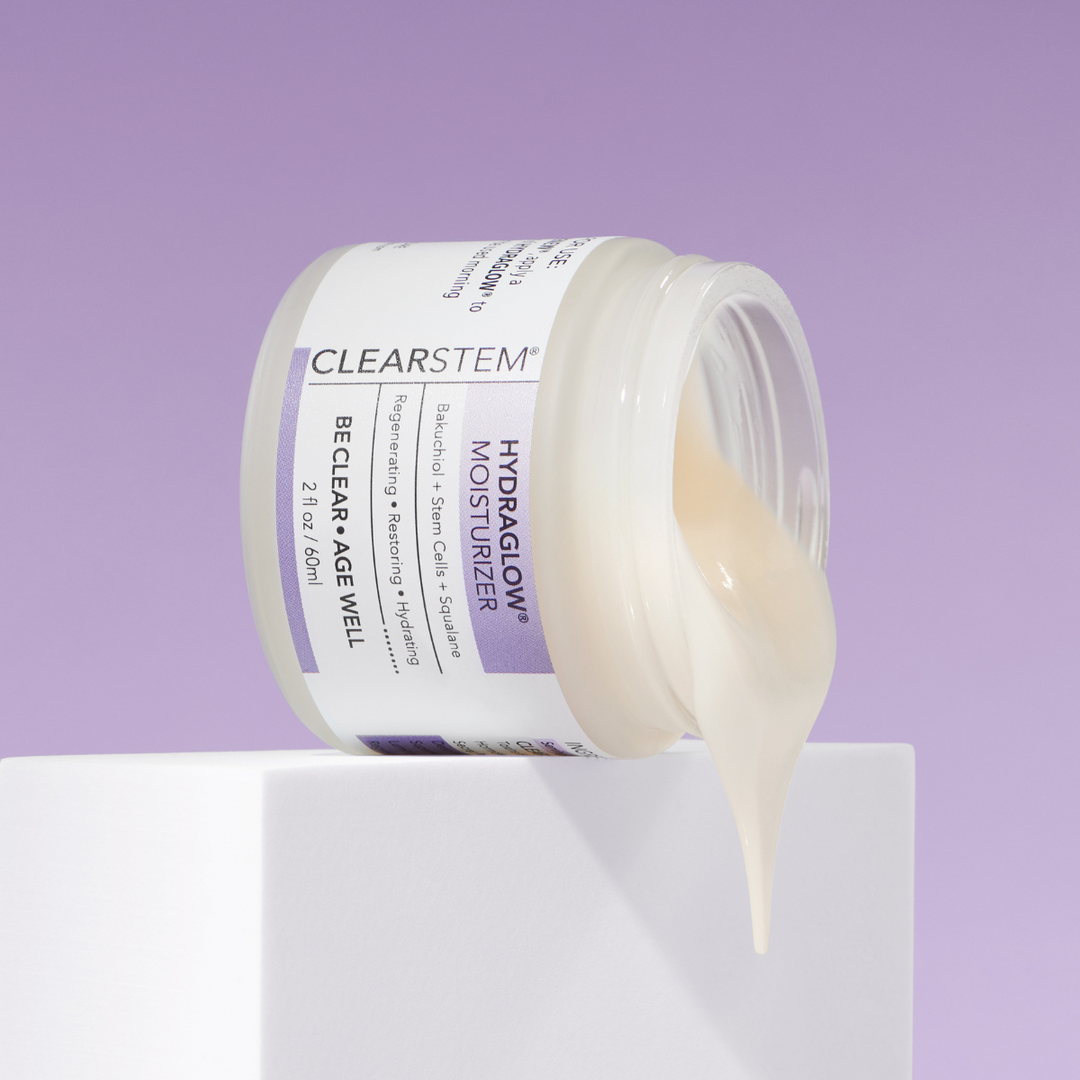Perhaps you’re dealing with persistent breakouts, and after reading about the benefits of jojoba oil, you decide to give it a try. Maybe you try using it for your acne, and it breaks you out even further. Or you started using jojoba oil conditioner for shinier hair, but after a few washes, you start to suddenly break out. Do either of these scenarios sound familiar?
While this natural oil has become a buzzword in wellness products, less attention has been paid to its comedogenic tendencies. Depending on your skin type, jojoba oil may be causing more harm than good. Read on to discover how jojoba oil can actually be pore-clogging for those with acne-prone skin.
What is Jojoba Oil?
As its name suggests, jojoba oil comes from the jojoba plant, native to deserts in North and Central America. It is really more of a liquid wax than an oil. In fact, jojoba’s composition is almost 98% pure wax, making it the only unsaturated liquid wax sourced from a plant.
Jojoba oil has been used for medicinal and cosmetic purposes for hundreds of years, and today, it is often found in hair and skin care products.
Does Jojoba Oil Have Any Skin Benefits?
Jojoba is structurally similar to sebum, our skin’s natural hydration molecules. Thanks to its antioxidant, anti-inflammatory, and antimicrobial benefits, jojoba oil is widely used in the pharmaceutical, medical, and cosmetic industries. It has been shown to make skin softer, improve dryness, and clear acne and psoriasis.
Jojoba’s hydrating properties can also help soothe sensitive skin issues, such as:
- Sunburns
- Rashes
- Dry scalp
- Conditions like eczema
That said, will jojoba clear your acne—or is it actually breaking you out? That all depends on its comedogenicity.
What Does Comedogenic Mean?
Simply put, comedogenic means pore-clogging. A comedogenic product contains ingredients that tend to block your skin’s pores, which in turn causes acne to form.
Just because something is organic or all-natural doesn’t mean it won’t cause a breakout—it’ll just do so naturally. When trying to clear your skin, it is crucial that you use only non-comedogenic products, as they will not clog your pores.
Is Jojoba Oil Comedogenic?
On a scale from 0 to 5, jojoba can have a comedogenic rating of up to 2, depending on its raw source. Sulfated jojoba oil is comedogenic as well, with an even higher rating of 3.
What does this mean? While jojoba is not 100% comedogenic (5/5), it certainly still can clog pores.
Is it Good to Put Jojoba Oil on Your Face?
Jojoba oil is safe to use, and in many cases, it has hydrating and clearing benefits for the skin. However, based on its comedogenic rating, it still has the potential to clog pores and break you out.
The effects of jojoba oil depend on two main factors:
- Your skin type – Acne-prone skin, often identified as an oily skin type, produces higher amounts of sebum than other skin types. Since this type of natural oil mimics sebum, if your skin is already acne-prone, jojoba oil is more likely to clog pores.
- Commercial preparation – Research shows that jojoba oils with added contaminants or irritants are more comedogenic than other jojoba skin care products.
Plus, it is also important to be aware of potential allergic reactions to jojoba. As with any new skincare product, you should spot test on your wrist first before applying it to your face.
If you are looking for a daily facial oil that's natural and safe for all skin types, try sunflower oil, castor oil, chaulmoogra oil, or squalene. With that being said, coconut oil should not be on your list of facial oils. Coconut oil can cause acne so be sure to avoid using this variety when choosing your products for acne-prone skin.
How Are Certain Skin Types Affected by Jojoba Oil?
As we have discussed, when jojoba is used as a facial oil, it is more likely to cause breakouts on acne-prone skin. Yet, for drier skin types, jojoba oil may be just the hydrating solution you’ve been looking for.
When used on dry skin that is not acne-prone, jojoba oil can help with:
- Xerosis (excessive dryness, flakiness, irritation)
- Barrier repair
- Atopy
- Inflammation
- Skin aging
Long story short: this natural oil is comedogenic depending on your skin type. It can just as easily clear some skin as it can be pore-clogging for those who are acne-prone.
How to Create an Acne-Safe Skin & Hair Care Routine
To help maintain clear skin, use non-comedogenic hair products, makeup, and skincare. Using comedogenic ingredients at any step in your daily routine only makes it more likely for your skin to break out.
Not sure where to start? Check out our comprehensive pore-clogging ingredients list to see if your skin and hair care products pass the test.
Achieve Clean and Glowing Skin with CLEARSTEM
Whether your skin is oily, dry, or in the middle, CLEARSTEM is here to help you achieve healthy, vibrant skin from the inside out.
Our anti-aging skincare for acne-prone skin includes moisturizers, masks, serums, and more to unclog pores and rejuvenate skin. For deeper results, an all-natural, non-toxic hormonal acne supplement targets acne at the source, balances hormones, and prevents future breakouts.
Start your journey to clear skin with CLEARSTEM today.
Sources:
National Library of Medicine. Jojoba Oil: An Updated Comprehensive Review on Chemistry, Pharmaceutical Uses, and Toxicity. https://www.ncbi.nlm.nih.gov/pmc/articles/PMC8197201/.
Journal of the Society of Cosmetic Chemists. Comedogenicity and irritancy of commonly used ingredients in skin care products. https://insolitbeauty.com/documentacion/Comedogenicidad%20e%20irritacion%20de%20los%20ingredientes%20de%20uso%20comun%20en%20productos%20para%20el%20cuidado%20de%20la%20piel.pdf
Wiley Online Library. An updated review on efficacy and benefits of sweet almond, evening primrose and jojoba oils in skin care applications. https://onlinelibrary.wiley.com/doi/full/10.1111/ics.12758










